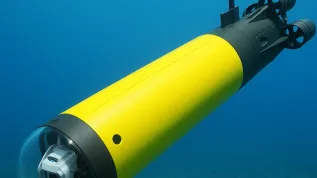
Poland has increased its contribution to the European Space Agency, POLSA reports. Most of the funds transferred to ESA will return to the Polish industry, enabling technological advancement and the development of competitive products and services, says the President of POLSA Grzegorz Wrochna.
'Increasing Poland's participation in ESA programs, access to research on the International Space Station ISS, construction of Polish observation satellites, as well as internships for Poles in ESA - these are the main areas that will be financed thanks to Poland's increased contribution to the European Space Agency,’ says Wrochna.
The increase in Poland's contribution to the European Space Agency was announced by Deputy Minister of Development and Technology Kamila Król at a meeting with the space sector representatives.
'The funds transferred to ESA will mostly return to the Polish industry, enabling technological advancement and the development of competitive products and services. In the first place, we want to meet the needs of our country in the field of satellite data, telecommunications and satellite navigation', says Wrochna.
He points out that satellites ensure communication and navigation, synchronize the movement of trains and planes, provide information about the weather and climate, support modern agriculture and other areas of the economy. 'We want to invest in those areas that offer the greatest chance of conquering new segments of the space technology market. Details will be determined in negotiations with ESA with active consultation of the Polish space sector,’ he adds.
A POLSA press release says that the decision to increase funds for ESA 'is an important step in the implementation of the Polish Space Strategy adopted in 2017'. The funds will be used to finance such activities as: 'PL-ESA bilateral program for the construction of observation satellites; PL-ESA bilateral program for technology development; Poland's participation in ESA programs; access to research on the International Space Station ISS'.
Internships for Poles in ESA were also mentioned.
The Polish Space Strategy envisions the share of the Polish space sector in the European market at the level of 3%.
POLSA explains that participation in ESA programs is also a 'contribution to the most ambitious exploration missions'. 'Today, Polish scientific institutions and companies supply components for missions that search for signs of life on other planets and their moons and explore the distant Universe. Examples include the Juice mission, launched a month ago, and the Euclid mission, launched last Saturday.’
According to POLSA, the increased funds will enable not only the supply of components, but the construction of complete systems and instruments. 'It will be of great importance for both Polish science and companies that will gain invaluable experience in the construction of space equipment. This will later translate into export services and products based on space technologies, says POLSA.
The Polish Space Agency (POLSA) is the executive agency of the Ministry of Agriculture and Tourism. Its task is to support the Polish space industry by implementing the priorities of the Polish Space Strategy. POLSA cooperates with international agencies and state administration in the field of research and use of outer space. It is responsible for the promotion of the Polish space sector in the country and abroad. (PAP)
author: Magdalena Jarco
maja/ pad/ kap/
tr. RL













